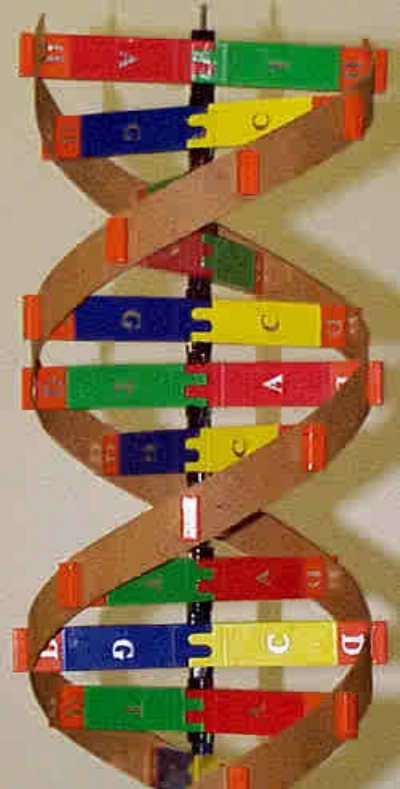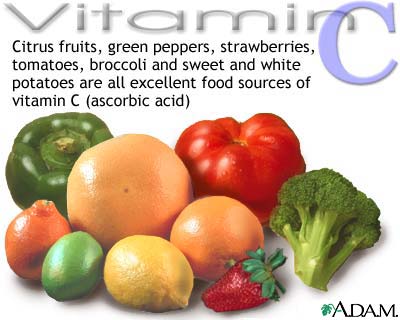Now Playing: The Vatimin Lady
THE pH FACTOR -
ACID RAIN IN THE BODY
by Lynn Hinderliter CN, LDN
 The human body contains up to 60% water overall: the brain is 70% water; the blood, 82% and the lungs almost 90%. We are an inland sea, and a blight can descend on our bodies if the acid /alkaline balance of this "water of life" is not maintained, just as the acid in rain is blighting some of the forests of the world..
The human body contains up to 60% water overall: the brain is 70% water; the blood, 82% and the lungs almost 90%. We are an inland sea, and a blight can descend on our bodies if the acid /alkaline balance of this "water of life" is not maintained, just as the acid in rain is blighting some of the forests of the world..All of the cells of our body are washed by the liquid medium of that sea, which allows nutrients to be transported from place to place, and laves away the toxins our cells discharge. When pH is imbalanced, the system breaks down - if the body's pH deviates too far to the acidic or too far to the alkaline side, cells can become poisoned by their own toxic waste and die.
Interestingly, scientists are now determining that the pH of our actual oceans is changing, with a concomitant effect on the health of the denizens of the sea.
Acidity can be a factor in:
irritability, anxiety and depression
excess mucous
lowered immune system function
Dysbiosis
aches and pains, inflammation
premature ageing because of cellular inefficiency
Many chronic disease states accompany an acid body condition : cardiovascular problems such as high blood pressure, high cholesterol, arteriosclerosis and stroke; many cancers; diabetes; many autoimmune diseases; osteoporosis, indigestion, bowel imbalances and dysbiosis; much inflammation, such as of the joints and the bladder..
I am not suggesting that acid pH is the only cause, or that correcting it will bring about a miracle cure: but any attempt to balance and bring health to the body needs to address this serious instability if it wishes to succeed.
Water is considered neutral at a ph of 7. Anything under that is increasingly acid, anything over - increasingly alkaline. The human body operates optimally at a pH that varies from 6.8 to 7.5, depending on the time of day: pH tends to peak at 6 o'clock in the evening, and at noon, with the lowest point coming at 6 o'clock in the morning. These readings represent homeostasis, or balance. When the pH is operating within these normal parameters, cells can take up nutrients as and when needed, depending only on availability, and can discharge wastes efficiently.
Calcium in particular is dependent on the correct pH for absorption. In addition, when the body is acidic, it will withdraw calcium from the bones in an attempt to provide the alkalinizing minerals necessary to correct balance.
Here is an excellent definition from Health Freedom Resources :
The cells of the body in health are alkaline, but in disease states the cell pH is below 7.0. The more acid the cells become, the sicker we are and feel. The cells won't die until their pH gets to about 3.5. Our bodies produce acid as a by-product of normal metabolism. This is the result of our bodies burning or using alkaline to remain alive. Since our bodies do not manufacture alkaline, we must supply the alkaline from an outside source to keep us from becoming acid and dying.
Food is the means of replenishing the alkaline to the body. The main determining factor of alkaline is the organic minerals. One can equate organic minerals with alkaline for better understanding. Foods are of two types, acid or alkaline. This refers to the ash value of a food. (Meaning the type of residue that remains after the food is digested and processed). Is it acid, or is it alkaline? If there is an acid residue (inorganic acids), the body must neutralize this acid to keep the blood from getting acid. The acid is neutralized with alkaline.
Ideally there is adequate alkaline in the diet to do this. However, if there is not, the body must extract alkaline from its cells to neutralize the acid. This, of course, causes the cells to become acid, and thus diseased. Because our bodies are an alkaline entity, in order to maintain health, the majority of our diet must consist of alkaline ash foods.
We can remain in health by consuming a diet that is 70-80% alkaline and 20-30% acid. The more alkaline the better. If we become too alkaline by eating a majority of alkaline foods, we will lose our appetite and automatically want to fast, during which time the normal acid metabolic by-products will return the body's pH back to normal. It is interesting to note that some foods which qualify as a real food have an acid ash reaction. This is probably nature's way of keeping a balance so that the real food consumer does not become too alkaline. Also note that the acid content of these acid ash real foods is very low and they still contain valuable nutrients which can be utilized by the body.
You can buy strips to measure pH at some health food stores. You can also order them directly from us. You can measure either urinary or saliva pH. Urinary pH should fall around 6.5, lower is acidic; salivary pH should be measured at least 2 hours away from a meal, and is healthy at 7.4, acidic below that.
Diet determines whether we tend towards the acid or alkaline and the average U.S. diet might almost be designed to cause us to err!
Proteins (pork, beef, chicken, ham, turkey etc.)
grains
coffee and tea
eggs
beer, wine and pops
most breads, spaghettis and pastas
refined rice
chocolate
all promote an acid state in our body fluids.
Dairy foods, potatoes and onions are mostly neutral, and
fruits
vegetables
beans and soy are on the alkaline side.
Occasionally I am contacted by confused clients who have found conflicting information from different experts concerning the pH of a food: I received this EXCELLENT clarification from another of my contacts, who is a long-time student of this health element:
"There is a lot of double talk by so-called experts. In some cases, the references are just the opposite of what they should be - I found that the reason apparently is that some experts are referring to the acid/alkalinity of food BEFORE these foods are eaten. There is a chemical change in the body which converts the (e.g.) acidity to alkalinity AFTER ingestion of the food. This should take out a lot of confusion about the chemical formation of the different foods.
There are some "superfoods" that are natural buffers that I use and recommend frequently. A natural buffer is a substance that counteracts the acid state of the body, and chief among them are concentrated green foods like
barley grass
spirulina
Chlorella
and some wonderful combinations of dried vegetables, sea vegetables and cereal grasses.
As a side note, I often have people tell me that their arthritis has been helped by taking a green food, and this is part of the reason why: people with arthritis are almost without exception highly acidic, which is a pro-inflammatory state. All concentrated green foods are helpful in alkalinizing pH.
Chronic acidosis also affects the function of the liver, causing congestion: when the liver is not functioning properly, inflammation can result: beneficially affecting this condition will also be of benefit in arthritis.
The other buffers I use and recommend most frequently because they are healthful in many other ways also, are
Brewers Yeast ( a natural source of B vitamins, selenium and chromium, among other things)
powdered Lecithin (a concentrate of the Phosphatides in soy)
Bee Pollen
Kelp.
Vitamin C (as Ascorbate for blood type O, as ascorbic acid for others) is an option that can have other benefits for those whose faulty pH accompanies a severe disease state where low immunity is a factor. Increase the amount of Vitamin C gradually until you have determined what your bowel tolerance is, and when that is established, I recommend using half that amount in the morning and half last thing at night to help regulate the body's acid balance.
I recommend a product by Vaxa called pH Balance.
Stress almost immediately causes acidic conditions in the body. For more about the effect of stress on our health, read my article on Stress and the Adrenal Glands.
In my article on digestion, you will find information about Hydrochloric acid and digestive health. Since stomach acid is a significant factor in maintaining pH balance, and is affected by stress, you will find that interesting too.
I find it vexing that some Doctors are still recommending Tums as a source of Calcium for their patients: it is a truly ironic recommendation, since Tums is designed to suppress stomach acid, and calcium is very poorly absorbed unless sufficient stomach acid is present. Sufficient HCL in the stomach, and a proper acid environment there, are also essential for keeping the body in proper pH balance. Lack of acid in the stomach often leads top too much acid in the body, which in turn leads to the withdrawal of minerals from the bones to correct and neutralize the problem.
At the moment there are no studies that support the importance of pH balance to health, and there are even some respected nutritional authorities that do not agree - Dr. Andrew Weil among them, who comments negatively here. However, in another place he emphasizes the importance of keeping the urine alkaline for urinary tract infections, and I wonder whether perhaps there is some confusion between blood pH ( which is regulated by the body) and urinary and salivary pH, which are at the mercy of the diet. If the pH of the mouth affects caries, and the pH of the bladder affects infections - then I submit that all places in between are also affected by an imbalance.
Other Articles from the Vitamin Lady







 We are bombarded every day with conflicting information about our health. Is it better to eat a low-carb diet or a balanced diet? Should we be physically active three times a week or five times a week? And how can we be expected to follow any of these recommendations when we're always so busy?
We are bombarded every day with conflicting information about our health. Is it better to eat a low-carb diet or a balanced diet? Should we be physically active three times a week or five times a week? And how can we be expected to follow any of these recommendations when we're always so busy?

 We are meditating on peace, light or bliss while the express train is constantly moving. Our mind is calm and quiet in the vastness of Infinity, but there is a movement; a train is going endlessly toward the goal. We are envisioning a goal, and meditation is taking us there.
We are meditating on peace, light or bliss while the express train is constantly moving. Our mind is calm and quiet in the vastness of Infinity, but there is a movement; a train is going endlessly toward the goal. We are envisioning a goal, and meditation is taking us there.
 In contemplation everything is merged into one stream of consciousness. In our highest contemplation we feel that we are nothing but consciousness itself; we are one with the Absolute. But in our highest meditation there is a dynamic movement going on in our consciousness. We are fully aware of what is happening in the inner and the outer world, but we are not affected.
In contemplation everything is merged into one stream of consciousness. In our highest contemplation we feel that we are nothing but consciousness itself; we are one with the Absolute. But in our highest meditation there is a dynamic movement going on in our consciousness. We are fully aware of what is happening in the inner and the outer world, but we are not affected.





